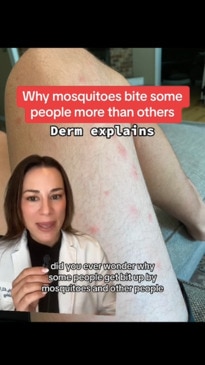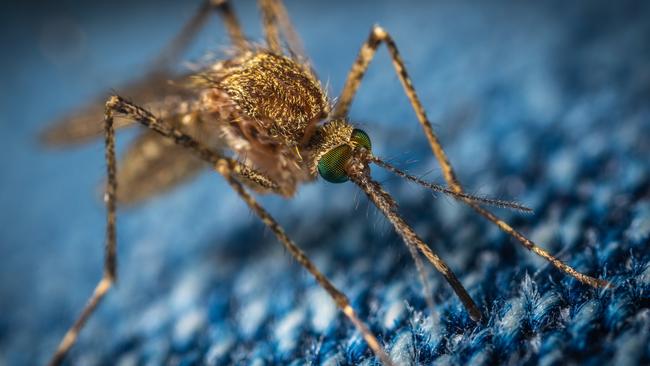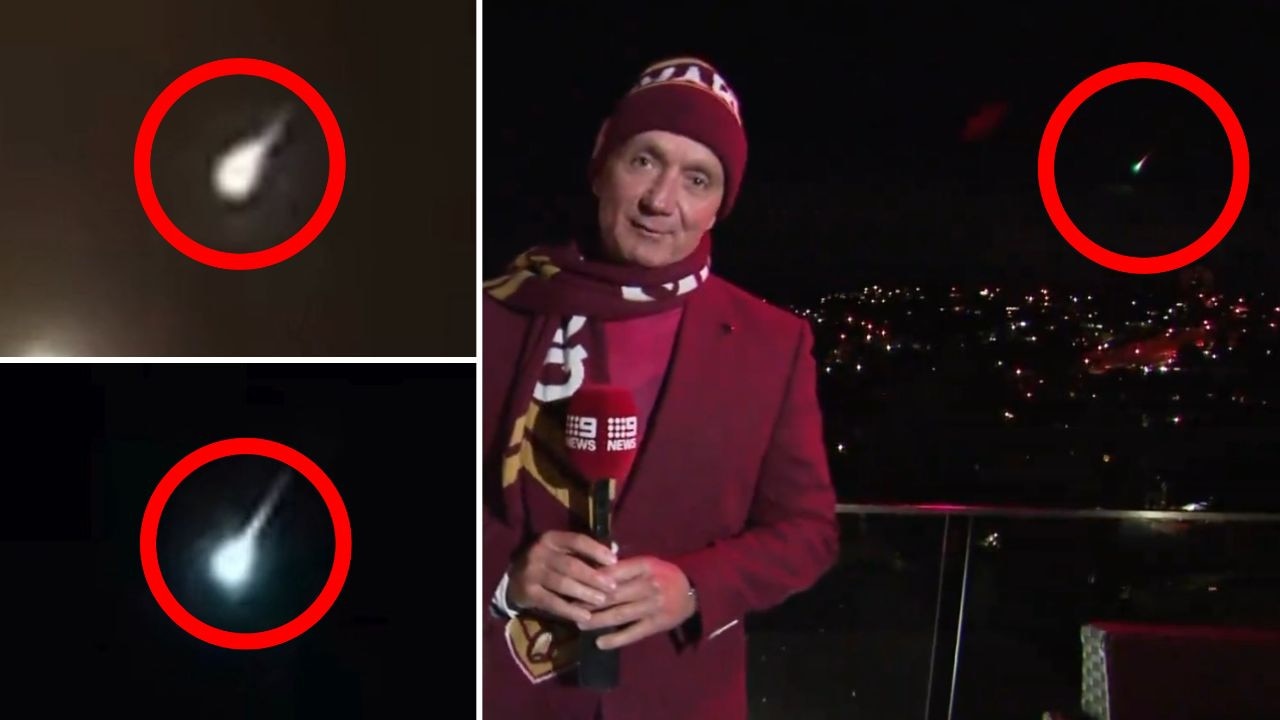Why mosquitoes are more attracted to you as plague swarms Queensland
Queensland’s under attack from a plague of giant mosquitoes and it appears the tsunami of bloodsuckers is only going to get worse. WHY MOSQUITOES ARE MORE ATTRACTED TO YOU

Brisbane News
Don't miss out on the headlines from Brisbane News. Followed categories will be added to My News.
Mosquitoes have swarmed towns and cities across Queensland thanks to a perfect storm of weather conditions, with insect control companies reporting a huge spike in demand.
The swarm of insects comes after years of La Niña summer’s reduced numbers due to too much rainfall, however with Queensland experiencing warmer conditions, the mosquitoes have reappeared in full force.
Griffith University vector biologist and postdoctoral research fellow Dr Eloise Skinner said there have been a lot more mosquitoes around and is thanks to a perfect combination of warm temperatures, humidity and rain.
“Mosquitoes will start biting about two weeks after rainfall, because that is how long it takes to lay eggs and grow into an adult … so after rainfall we’re going to see a large number of hungry mosquitoes,” she said.
Some species of mosquitoes and midges thrive in water, however too much rainfall can reduce numbers, with temperature and humidity being a main driver in breeding.

Dr Skinner added there were two main mosquito species in Brisbane that bite people, and both thrive in different environments.
“One likes small pots of water, you can find them in plant clippings inside of homes or small pots of water … the other species likes grassy open spaces,” she said.
Michael Nel from Green Frog Misting, who specialises in mosquito and midge control, said they had not seen this amount of calls in four or five years.
“It’s quite dramatic … calls have increased 10-fold in quotes for mosquito control in just the last two months,” he said.
Mr Nel added that this time of year they usually received calls for midge control who are found near water, however a drier summer has brought out the mosquitoes much more than previous years.
“Most of these calls are coming from north Brisbane, particularly around Redcliffe, North Lakes and Strathpine – these three have been hotspots.”

Mosquitoes are known to be attracted to certain types of people, and Ms Skinner said while there are many reasons, it is largely due to certain smells or cues.
Another is they will feed on pregnant women due to the female mosquitoes needing extra protein to lay her eggs.
“For some people, the biomechanical makeup or smell on your skin is more attractive to mosquitoes … it can potentially be blood type as well,” she said.
“But that is why they usually bite you around the ankle because that space has a really unique kind of olfactory cue and smell.”
Warmer temperatures make every part of a mosquitoes life cycle faster, and Ms Skinner warned with climate change and rises in temperature, Queensland could see higher numbers of mosquitoes stick around.
Civic Cabinet Chair for City Standards Kim Marx said Brisbane City Council is the only local government in Australia to employ expert entomologists.
“When they say to spray, we spray,” Ms Marx said.
“Spraying for freshwater mosquitoes has a year-round, weekly on-the-ground schedule which has continued as normal,” she said.
Council entomologist Martin Shivas told the ABC in November over the last few years there had been historically low numbers due to the extreme wet weather, and Brisbane is rather entering a ‘normal season’ that residents had not seen in some time.
In terms of stopping the itch, first steps are to fight the temptation to itch the bite in the first place.
“Your best bet is a bit of anti-itch cream. If a mosquito is hungry, it will still bite you, so the best way to prevent the bites is to wear long sleeves at dusk and dawn, apply some mozzie repellent and avoid those damp environments,” Ms Skinner said.




